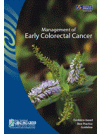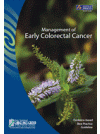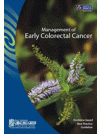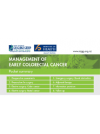Colorectal cancer is one of the most common cancers registered, and the second most common cause of death from cancer in New Zealand.
This evidence-based guideline, Management of Early Colorectal Cancer, was funded by the Ministry of Health and developed by the New Zealand Guidelines Group. It provides guidance for secondary and tertiary care practitioners on delivering best-practice care.
The guideline was commissioned by the Ministry as part of its commitment to the implementation of the Cancer Control Strategy. It follows the publication of evidence-based guidelines for the management of melanoma, early breast cancer and suspected cancer in primary care.
This guideline fits within a broader suite of guidelines and programmes developed to support health professionals to care for people with colorectal cancer in New Zealand.
Purpose
The purpose of this guideline is to provide an evidence-based summary of current New Zealand and overseas evidence to inform best practice in the management of people with early colorectal cancer. The guideline will be relevant and useful to all secondary and tertiary care practitioners involved in the care of people with early colorectal cancer (ie, not metastatic or recurrent).
Key Results
Key messages
- A patient navigator, care coordinator or support person should be involved to support patients and their families/whänau following a diagnosis of colorectal cancer and to assist in guiding them along the patient care pathway.
- Service providers should ensure that information about colorectal cancer care and support services meets the needs of different ethnic groups and their families/whänau.
- All people with colon or rectal cancer should be discussed at a Tumour Board meeting.
- Elective surgery for both colon and rectal cancers should be carried out by surgeons who have undergone specific training and exposure to these surgeries and who sustain a sufficient caseload and experience to maintain surgical skills.
- For people with resected node positive colon cancer (Stage III) who are to receive postoperative chemotherapy, combination chemotherapy with oxaliplatin and a fluoropyrimidine is recommended. People with resected node negative colon cancer (Stage II) with poor prognostic features may also be offered postoperative chemotherapy, and health practitioners should discuss the risks and benefits of treatments, including the uncertain benefits of treatment and the potential side effects.
- Preoperative or postoperative adjuvant therapy should be considered by a multidisciplinary team for all people with rectal cancer.
- People with colorectal cancer should be given written information outlining planned follow-up (eg, a discharge report) at discharge from treatment, including what they should expect regarding the components and the timing of follow-up assessments.




